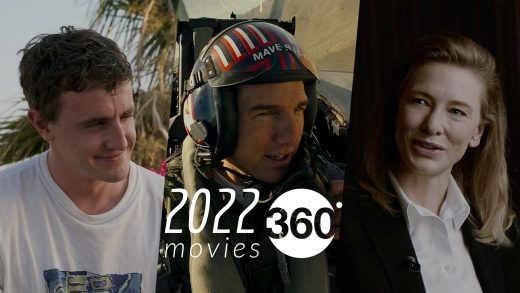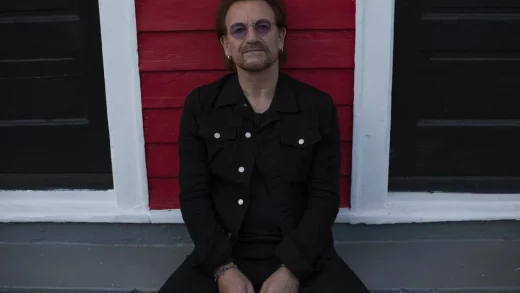:format(webp)/https://www.thestar.com/content/dam/thestar/entertainment/books/2023/05/20/my-name-is-robert-and-im-a-sucker-for-a-romance-novel/main_photo_man_reading_a_book_echoes_summer_beach_reading_pics_dreamstime_l_41.jpg)
I come by my love of romance novels naturally.
When I was a kid, there wasn’t a lot of money for books, or places to buy them. I used the libraries, but we didn’t live in town so my access was limited, especially during the summer, until I was able to bike in on my own. As a result, I read whatever I could get my hands on.
I read the men’s action novels that my dad read. Don Pendleton’s “The Executioner” series was a mainstay, but I preferred the Nick Carter-Killmaster series, a pulpy, dirty spy series. So much violence. So much sex. So much fun. Everything an 11-year-old, James Bond-obsessed boy could want.
I read anything that seemed of interest from the boxes of used paperbacks we kept in a spare room. Gerold Frank’s “The Boston Strangler” was the first step in a lifelong love of true crime. Cornelius Ryan’s “A Bridge Too Far,” a huge account of the Battle of Arnhem, was a favourite. As was Robert H. Rimmer’s “The Harrad Experiment,” which documented, in early 1970s style, a university “experiment” in polyamory (I didn’t really understand a lot of this one, but it made me very excited to go to university).
Romance found me when I stayed at my grandmother’s house. It was there I first read Barbara Cartland and other writers who have faded into memory. And it was there that I first read Harlequin romances.
No alarm bells went off. There was no pounding at the door by the reading police. These were just books, part of a spectrum of things I was reading. No big deal. And there were a lot of similarities between those novels and the non-romance novels I was reading. Heck, the “Executioner” novels were published on a monthly subscription basis, exactly like the Harlequins.
Of course, I didn’t bring the Harlequins to school to share with my friends. We flipped through Nick Carter, looking for the violent and dirty bits. The romance novels? Even then, I knew to keep that information to myself.
I’m still drawn to that sort of narrative-focused writing. Whether it’s Lee Child or romance novels, I’m a sucker for story.
I’m also — I’ll just say it — a sucker for romance.
The fact is, everyone should be a sucker for romance.
As a genre, romance distils one of the fundamental human experiences. Falling in love, suffering setbacks, building toward a happily ever after? Isn’t this one of the cornerstones of being human? Aren’t we, as individuals, more likely to face romantic travails than, say, to uncover the roots of a massive conspiracy that would undermine the American government?
The drama of life is, in the main, usually small and domestic, between individuals. I can understand wanting to read outside of that, but why would you close yourself off from reading about something so relatable?
Romance novels have virtually unlimited potential to build on that foundation. Susanna Kearsley, for example, is one of the best Canadian writers at work today, blending historical and paranormal elements in a powerful and unique mélange. The Lady Sherlock novels of Sherry Thomas are a wonderful reimagining of the Sherlock Holmes mythos with the slow-boil relationship between Charlotte Holmes and Lord Ingram at their core. The novels of Emily Henry and Carley Fortune capture the confusing nature of contemporary early adulthood with romantic aplomb.
And so on.
With the genre offering so much, it shouldn’t be a big deal to say “I like romance novels.”
So why does it feel like a big deal? Why does it feel like I’m stepping way out of my comfort zone and revealing something vaguely unsavoury about myself?
Honestly? I blame the patriarchy.
I know that sounds like a punchline, but it’s true. My discomfort is largely a matter of internalized bias and discrimination, firmly rooted in misogyny.
Which makes me even more uncomfortable.
But the fact is, romance, as a genre, is not just looked down upon, but outright scorned. Despite the fact that romance is the largest and most successful of genres, it is routinely dismissed. During my nearly 25 years as a bookseller, I saw that dismissal, the rolled eyes, on a regular basis, but the reductiveness seems cultural, rather than strictly personal (after all, those who are dismissing romance freely acknowledge not actually having read any).
Those who denigrate it have a lot of reasons for their scorn.
“Romance novels are so predictable!” There’s some validity to this, but Lee Child isn’t scorned for the predictability of the Jack Reacher novels, is he? (Full disclosure: I’m also a fan of the Reacher novels.) And let’s face it: there’s something comforting about a degree of predictability, whether it’s a happily ever after ending or Reacher getting back on the road, bloodied but unbowed.
“Romance novels aren’t well-written!” Certainly, some romance novels aren’t particularly well-written. But we don’t condemn other entire genres — horror, science fiction, commercial fiction? — for some of the writing being subpar, do we? And it’s hard to argue with the bona fides of writers like CL Polk, Jasmine Guillory and countless others.
“Romance novels are so unrealistic! Divorce rates are at nearly 50 per cent!” This is, in fact, true. But so what? We all know the reality of relationships. And if all fiction that was “unrealistic” was judged in the same way, we would lose multiple other genres, from science fiction and fantasy to horror to most mysteries.
In every argument, the bar for romance novels is set much higher than for other genres. What’s the key difference, though, really?
Misogyny.
Romance novels are largely written and read by women, as opposed to other genres that have a much more even split between readerships. Which means, in some minds, that the entire genre can be dismissed as having nothing to offer male readers.
It’s all bias and prejudice: there’s no reason to even entertain such thoughts.
If it seems like I’m trying to justify my fondness for romance, that’s not quite it. Mostly, I’m wondering: why aren’t more men reading romance? Is it because we’re worried we’re going to be somehow emasculated if the word gets out? Are we so committed to the patriarchy that we’re willing to go without something that can be so enriching?
Because that’s the thing: romance novels make me happy. They allow me, for a few hours, to get out of my own head and out of the swirling crap show we’re all living in. They allow me to connect with characters and wish them the best, and to celebrate when things work out.
Why wouldn’t you want that?
JOIN THE CONVERSATION
does not endorse these opinions.


